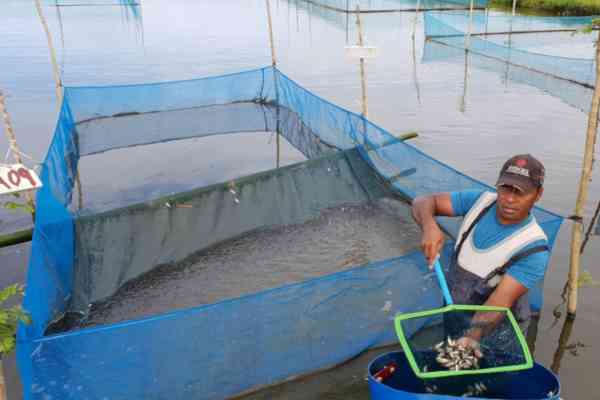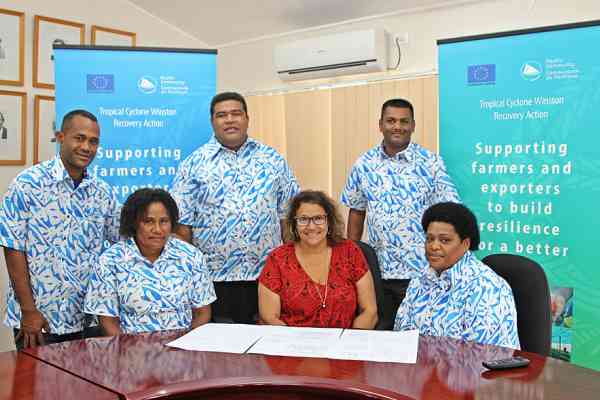(disponible en anglais uniquement)
Grand opening of Kaybee farms tilapia fish hatchery by Minister of Fisheries in Fiji
Fiji’s Minister for Fisheries, Honourable Semi Koroilavesau officially opened the Kaybees male-fish-only tilapia hatchery in Nakasi this morning.
In his opening remarks, Mr Koroilavesau congratulated Kaybee Farms on the initiative which will immediately see more farmers in the vicinity benefitting from the supply of tilapia fingerlings.
“It is very heartening to see the dedication by private businesses like Kaybee Farms especially in growing tilapia fingerlings mainly for distribution to other tilapia farmers. Government is encouraging more private-sector led initiatives such as these and now with the effects of Covid 19, aquaculture will play an even more important role in terms of food and income security,” said Mr Koroilavesau.
“The Ministry of Fisheries had an increased budget this year for the aquaculture division in the hope that it will assist more interested individuals, groups and communities in starting their own tilapia farms,” added Mr Koroilavesau.
Through the technical assistance from the Pacific Community (SPC) under New Zealand’s Pacific Sustainable Aquaculture Development project (PacAqua), Kaybee Farms owner, Ms Katarina Baleisuva had established her own private tilapia hatchery.
The exceptionally hard working entrepreneur has certainly stepped up to the plate and is also paving the way for other women in the country.
“Seeing that the Ministry of Fisheries had a lot of farmers waiting in line for the supply of tilapia fingerlings, I decided to grown my own tilapia fingerlings,” explained Katarina.
“The decision to move solo has indeed paid off as I now have customers from as far as Ba and Navua buying from my farm. More people are now realising the importance of growing our own food whether it be fish farming or vegetable farming,” added Katarina.
Kaybee farm manager Josese Vusoniceva added that the journey was a struggle at first merely because of the fact that the baby fish need very careful handling in order to avoid damaging or killing them.
“We had problems from trying to use tap water to fill the hatchery recirculation system. The SPC technical advisors helped us to change over to using filtered pond water. They also trained Katarina, our farm staff, and FNU industrial attachment interns at our farm in the fish egg collection methods widely used overseas, especially in Thailand. Now we are getting really good results, producing around 250,000 fry from the hatchery every month. We can fill big orders for tilapia fingerlings, and can also grow them to bigger size at the farmer’s request”.
Fish farming for food security has been practiced in Fiji for many years and through government support, the Ministry of Fisheries has been offering services like pond site selection, farmer training as well as the supply of fingerlings for pond stocking.
The PacAqua project currently supports 15 enterprises, including 14 private sector enterprises and one farmers’ association spread across eight countries in the region (Papua New Guinea, Fiji, Solomon Islands, Vanuatu, Kiribati, Federated Stages of Micronesia, Republic of Marshall Islands, and Tonga) and two territories (French Polynesia and New Caledonia).
Media Contacts:
Kuini Waqasavou, Senior Media Officer, Fiji Ministry of Fisheries, P: (679) 330 0555 | M: (679) 8932 254 l[email protected] | www.fisheries.gov.fj
Toky Rasoloarimanana, Communications Officer, Fisheries, Aquaculture and Marine Ecosysytems Division, Pacific Community (SPC) | [email protected], Mob: +687 89 93 94

